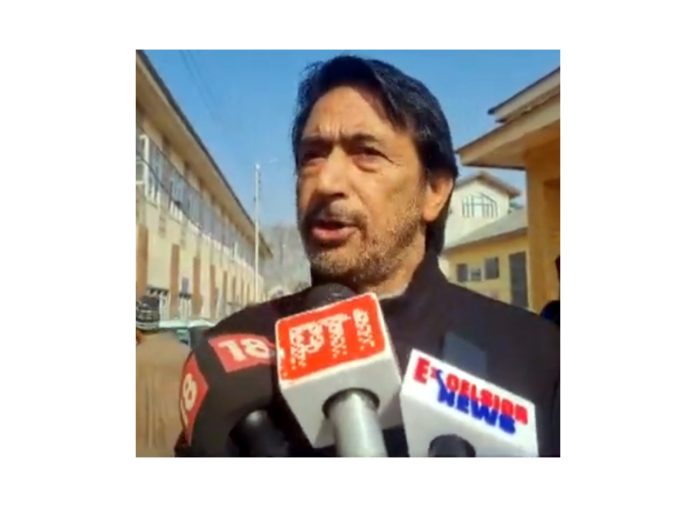Irfan Tramboo
Srinagar, Dec 13: Senior Congress leader and AICC general secretary G.A. Mir today said that implementing ‘One Nation, One Election’ is impossible in a vast country like India.
Speaking with reporters after attending an event at Women’s College Anantnag, Mir, who is also a Member of the Legislative Assembly (MLA) from Dooru, said it is unimaginable to conduct all elections simultaneously.
Click here to watch video
“I personally feel that in a big country like India, conducting all the elections with the press of a single button is impossible. It is beyond imagination,” he said.
Mir questioned how it would be feasible to hold simultaneous elections for Panchayats, Urban Local Bodies, State Assemblies, and Parliament across all states. “How is that going to happen? It is beyond imagination,” he said.
He further added, “I don’t think we are advanced enough at this point to conduct one election across the entire country with a democratic set up.”
It is to be noted here that the Bill for ‘One Nation, One Election’ has already been passed by the Union Cabinet, with the Government likely to table it in Parliament during the ongoing session.
Mir accused the Government of using the ‘One Nation, One Election’ as a distraction from pressing issues faced by the people and unfulfilled promises.
“The Government raises such topics just to divert attention from real issues like unemployment, national progress, and increasing people’s income. These issues need addressing, but instead, they rake up topics like this; the focus should be on solving fundamental issues,” he said.
The Congress leader stated that once the Bill is tabled, all political parties would present their viewpoints. He stressed that all political parties should voice their opinions transparently.
“The issue will be debated in Parliament, and all political parties will share their perspectives on what the Government is aiming to achieve,” he said.
Mir also highlighted the loss of trade and employment opportunities in Jammu following the end of the Darbar Move.
He linked it to broader governance challenges, stating: “Decisions like these directly impact people’s livelihoods, which should be the Government’s priority.”


